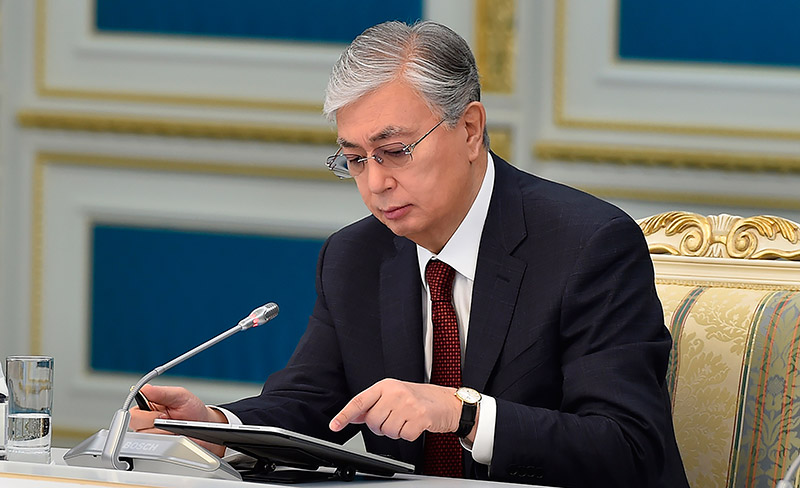NUR-SULTAN – Kazakh President Kassym-Jomart Tokayev has signed the decree approving the National Security Strategy for 2021-2025, reports the Akorda press service.

President Tokayev
The National Security Strategy that was previously approved at a meeting of the Security Council chaired by First President Nursultan Nazarbayev contains updated approaches to protecting the country’s national interests.
The strategy is one of the fundamental documents of the new system of state planning implemented following Tokaeyv’s instructions.
It focuses on countering the key challenges that are projected for the next five years, including the coronavirus pandemic and other biosecurity threats, technological changes, crisis in foreign markets, growing tensions in the global and regional arena.
Among the main priorities outlined in the national strategy are the security of citizens and the state, protection of human capital, the development of public health care, environmental safety, including the management of natural resources, and information security.
“Economic security tasks have been substantially adjusted. They depend on the transition to a growth model, resistant to external shocks, and one that stimulates productivity and increases the level of technological sophistication, creates permanent high-productive jobs and conditions for increasing the incomes of the population,” said the Akorda website.
Traditional national security components – defense capacity and the promotion of national interests – are also envisioned in the document, but with significant changes reflecting new regional and global challenges.
Preventive mechanisms and specific measures to prevent threats have been developed that will be implemented through the National Security Risk Management Action Plan.
Kazakhstan was among the first countries to revise its national security strategy, said Sanat Kushkumbayev, deputy director of the Kazakhstan Institute for Strategic Studies.
“Of course, the strategy reflects the changes that are now occurring rapidly worldwide. It has to do with biological security, and not only with combating the current pandemic, but also economic and technological security. We see how the pandemic has affected the economy and international trade. These are all very important aspects. We must be prepared to meet the challenges and threats that this kind of thing poses to Kazakhstan’s economy,” said Kushkumbayev.
He noted the importance of such areas as food security as part of the broader effort to make the agriculture sector more sustainable and water security as well.
“It (referring to water security) is closely linked with international relations since most of the water flow in the country is formed on the territory of neighboring countries. Therefore, it is very important to build relations with neighbors, first of all, with Russia and China,” he added.
In the coming years, Kushkumbayev forecasts the international relations system to become more turbulent given the increased confrontation in the international arena. To ensure the country is protected from potential external shocks, Kazakhstan should have clear guidelines in its foreign policy based on a multi-vector policy.

